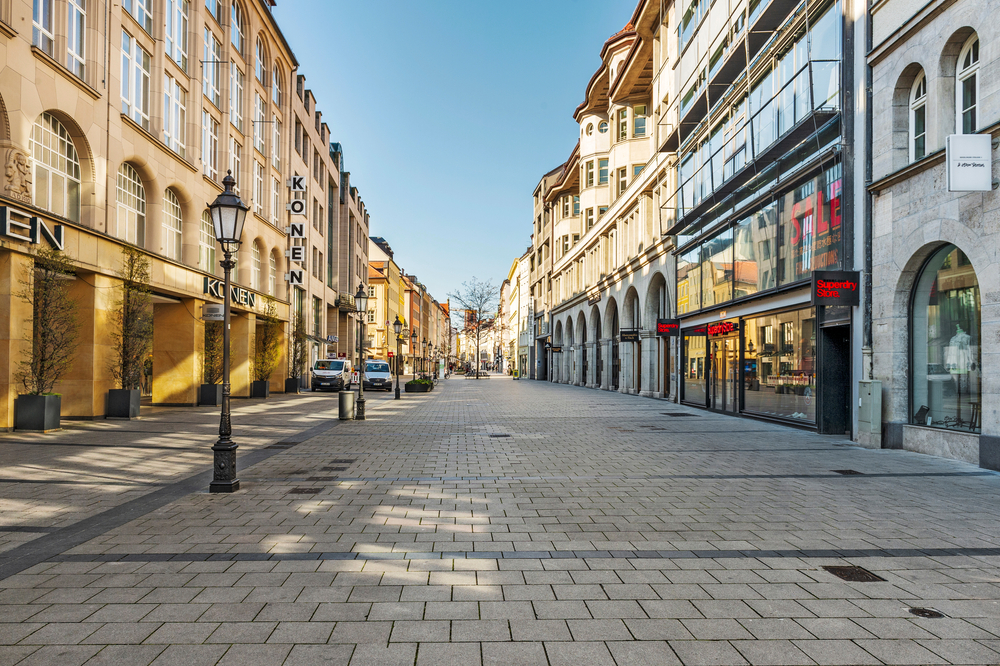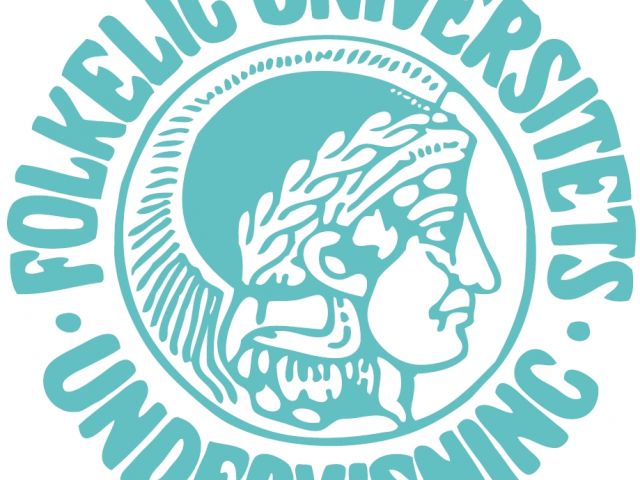CBS professor’s review of corona measures is happy news for democracy in Europe

Mads Dagnis Jensen, associate professor in political science at the Department of International Economics, Government and Business, CBS. Photo: Caroline Hammargren
In the spring of 2020, political science associate professor Mads Dagnis Jensen, like many others, was celebrating the end of lockdown drinking a beer with some fellow political science researchers in Christianshavn. At a time when just about everyone was comparing different governments’ Covid-19 measures, you can bet that these comparative politics nerds also were. “Why don’t we write a book,” one of his colleagues suggested.
Two and a half years and five hundred pages later, the book is out just in time for Christmas. Though it might not be the best choice for leisurely holiday reading – Mads Dagnis Jensen himself prefers streaming series from the couch when he’s free – he reads enough through work.
One can easily understand him. The book, Governments’ Responses to the Covid-19 Pandemic in Europe – Navigating the Perfect Storm, which he has co-edited with his former colleagues from Roskilde University, Kennet Lynggaard and Michael Kluth, maps no less than 31 European countries’ Covid-19 responses during the first year and a half of the pandemic. It counts on contributions from 48 political scientists across Europe. Another CBS professor, Eddie Ashbee, has contributed the chapter on the United Kingdom.
“A huge task,” says Mads Dagnis Jensen, smiling in a white meeting room at the Department of International Economics, Government and Business in Porcelænshaven, which has been home to his work for the past five years.
Keeping the academics, all with their different interests and specialties, in line so as to achieve comparable country chapters was hard editing work.
Now that it is finished, Mads Dagnis Jensen hopes the book, and the data sets published with it, will be used for future research. While the main audience is academia, he hopes to reach a wide range of actors and maybe have a policy impact. He is happy to see that a civil servant in Luxembourg has already downloaded it on ResearchGate.
“It’s such a mega event that you feel an urge to study and understand as a social science researcher. And so did a lot of other people. When we started contacting people, everybody said yes,” he says.
The interest from researchers is notable, explains Mads Dagnis Jensen, as it is less prestigious for scholars to write book chapters than to be published in an academic journal.
“A lot of people had an intrinsic interest in documenting this major event. Let’s say another pandemic happens in decades down the line, now we have an overview of how European governments coped with the Covid-19 pandemic.”
It’s such a mega event that you feel an urge to study and understand as a social science researcher. And so did a lot of other people. When we started contacting people, everybody said yes.
Mads Dagnis Jensen, associate professor in the Department of International Economics, Government and Business
But Mads Dagnis Jensen is cautious to draw up any key points based on the findings: “the systems are so different, and we found so much variation,” he says.
“If you were asking from a specific country and situation, I could give some advice.”
There’s no silver bullet for pandemic response. Except maybe one thing:
“It’s a bit outside the book, but indirectly: trust in society is an important factor. Then you can do more because actors are working together and there is the idea that they are working in your interests for the good of society.
“You cannot really manipulate long-term trust in a society. That’s something that takes decades if not centuries to create. But it’s an important key to success. Like in most social interactions.”
First, rally-around-the-flag, then back to politics
While there were many variations in the countries’ Covid-19 responses, they were not always easy to predict.
“Even political systems that are quite similar didn’t respond in similar ways. The responses are rarely correlated with established geographical, economic or political patterns,” says Mads Dagnis Jensen.

Mads Dagnis Jensen, Associate Professor of political science at CBS, is co-editor of the book Governments’ Responses to the Covid-19 Pandemic in Europe, which maps the Covid-19 responses of the 27 EU countries, the UK, Iceland, Switzerland and Norway. Photo: Caroline Hammargren
But some findings were consistent across Europe.
“A fear we had in the beginning was that this would permanently damage democracy and that governments would assert themselves and exploit the crisis to roll back the rights of other democratic institutions and the citizens.”
But that did not happen. While most countries saw a rally-around-the-flag effect – with institutions and the public backing up the governments and giving them space to act at the beginning of the crisis – with time, other institutions and actors fought back to assert themselves.
“When we get into later phases of the pandemic, we see increased politicisation. We see parliament and opposition parties coming back in and politicising which areas should reopen, and interest groups fighting for their areas to have special priority. Slowly, other actors than the government come into the process and we get something that resembles a normal political process with disagreement and different interests being played out. This is actually healthy from a democratic point of view.”
In other words, a positive review for democracy in Europe.
“The democracies are quite resilient in that they are bouncing back and returning to normal functioning as before the pandemic. Even in Hungary, which is known to be an illiberal democracy, we see that some of these Draconian measures adopted initially are slowly being pushed back as time progresses.”
A European outlier
Among the European countries there was one clear outlier:
“The obvious one is Sweden. Some countries like the UK, Netherlands, to some extent also Finland and Denmark, at the beginning, had a similar approach to, in a way, let the pandemic run its course with no major lockdowns, but only Sweden stayed with this. The rest sooner or later made a policy U-turn and adhered to what the rest of Europe was doing in terms of lockdowns and other containment and closure measures.”
The book does not seek to explain why countries responded as they did – that is another study, and often down to practical aspects, such as who held leadership positions.
A fear we had in the beginning was that this would permanently damage democracy and that governments would assert themselves and exploit the crisis to roll back the rights of other democratic institutions and the citizens.
Mads Dagnis Jensen, associate professor in the Department of International Economics, Government and Business
The Swedish example contrasts with Denmark where the politicians overruled the health authorities, which also wanted to keep society more open, and advised against facemasks and border closures.
But it is not so easy as just deciding to follow the experts.
“We tend to think of health expertise as something scientific that politicians should follow. But in most countries, the health experts were divided themselves. So, the politicians could pick their experts according to what policy they wanted to get through and justify it with expertise.”
This creates a situation that is hard for politicians to navigate. To cope with this, countries look to each other.
“You learn from the positive experience of your neighbours. When we ask in Denmark, they say they learn from Germany and Norway. When we ask the Norwegians, they say Denmark and Germany and the German’s say they learn from Denmark, so there’s a system where they are all referring to one another in terms of policy learning.
“This is also a way to avoid blame as a politician. You can say ‘we are doing like most other European countries. We’re following the mainstream approach.’ This is also why Sweden received so much blame.”

Empty streets in Munich during the first Covid-19 lockdown in March 2020. Germany is one of the countries in Europe that, according to the study, found a relatively good balance between closures and remaining open for business. Photo: Shutterstock
As we speak, yet another debate over the authorities’ response to the rise of Covid-19 cases in Denmark is gaining momentum.
Mads Dagnis Jensen gives the Danish government a good review, at least for the first one and a half years that the study covers.
“The government has been evaluated quite positively for its pandemic management and this also corresponds with what we find. We see a centralisation of power around the prime minister’s office and steering from the top, but also consensus features, which Danish democracy is known for.”
Economy versus lives
Almost everyone, at some point, has had an opinion on how their government, and others, were doing. So, does he think the public have judged too harshly?
“I think people often see it from their individual point of view and forget to compare with other countries. Maybe they see their country as special in some regards. But maybe your government didn’t act as poorly as you thought, and we see similar tendencies in other countries.”
In the experts’ evaluation of the efficacy of adopted policies, which is part of the study, Northern and Western, and to some extent, Southern Europe, scored more positively.
“In a number of countries, the experts have evaluated that the governments prioritised the economy more than people’s lives. This also correlated with higher mortality rates.
“But it’s a difficult equation to say what success is and on what time dimension we measure it.”
So, is it possible to say who did best in the first wave?
“We have to look at parameters such as keeping society functioning while at the same time preventing too much spread of the virus. If we look to the South, which took some rather Draconian measures, many argue that was too much. When you ask the experts, many would point to Germany as a country that found an adequate balance, and perhaps also Denmark.
“At the end of the day, it’s a political decision how you weight the different parameters. How much emphasis on saving lives, freedom of citizens, keeping the economy growing? That’s not something you can decide objectively,” concludes Mads Dagnis Jensen.




































































































































Comments